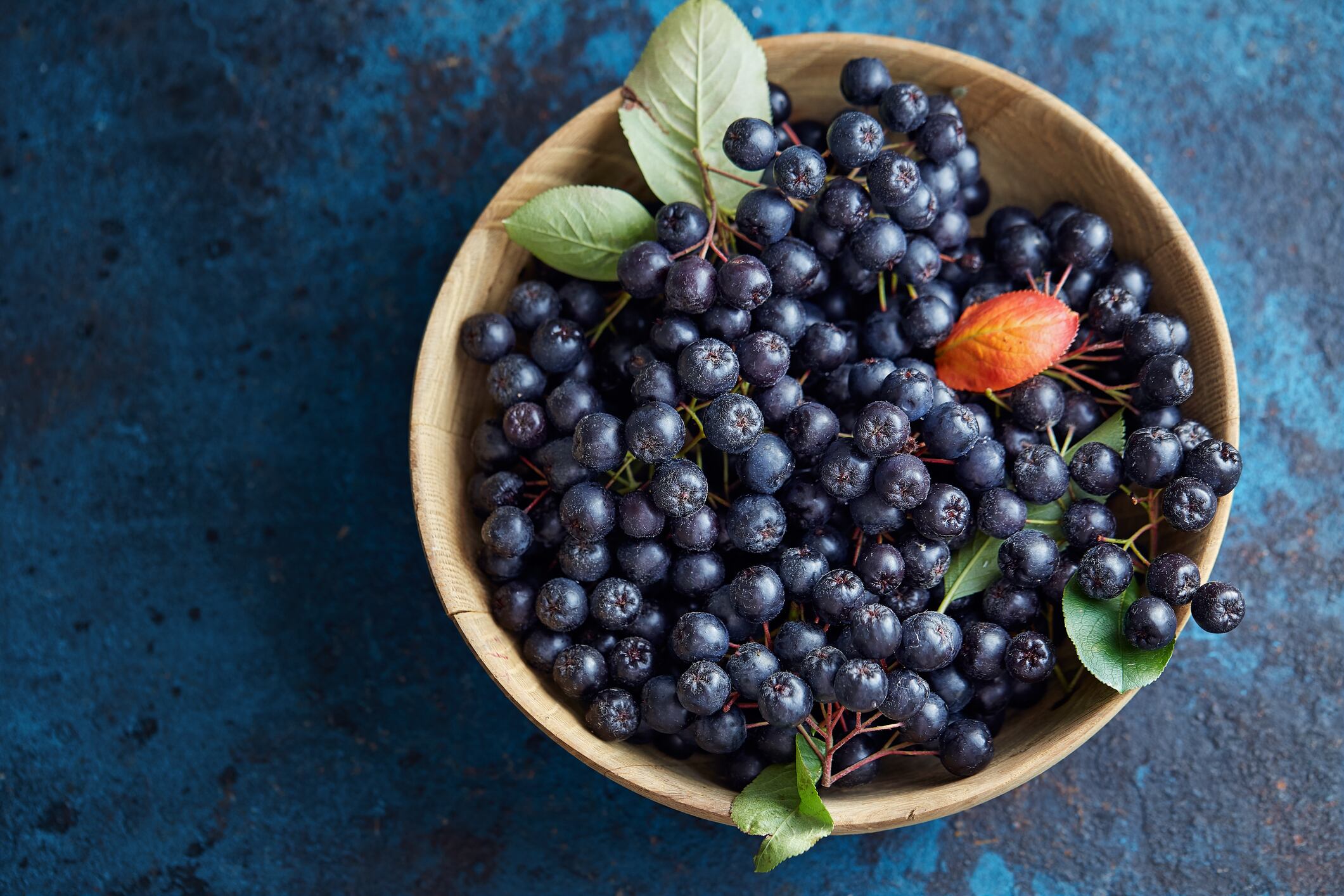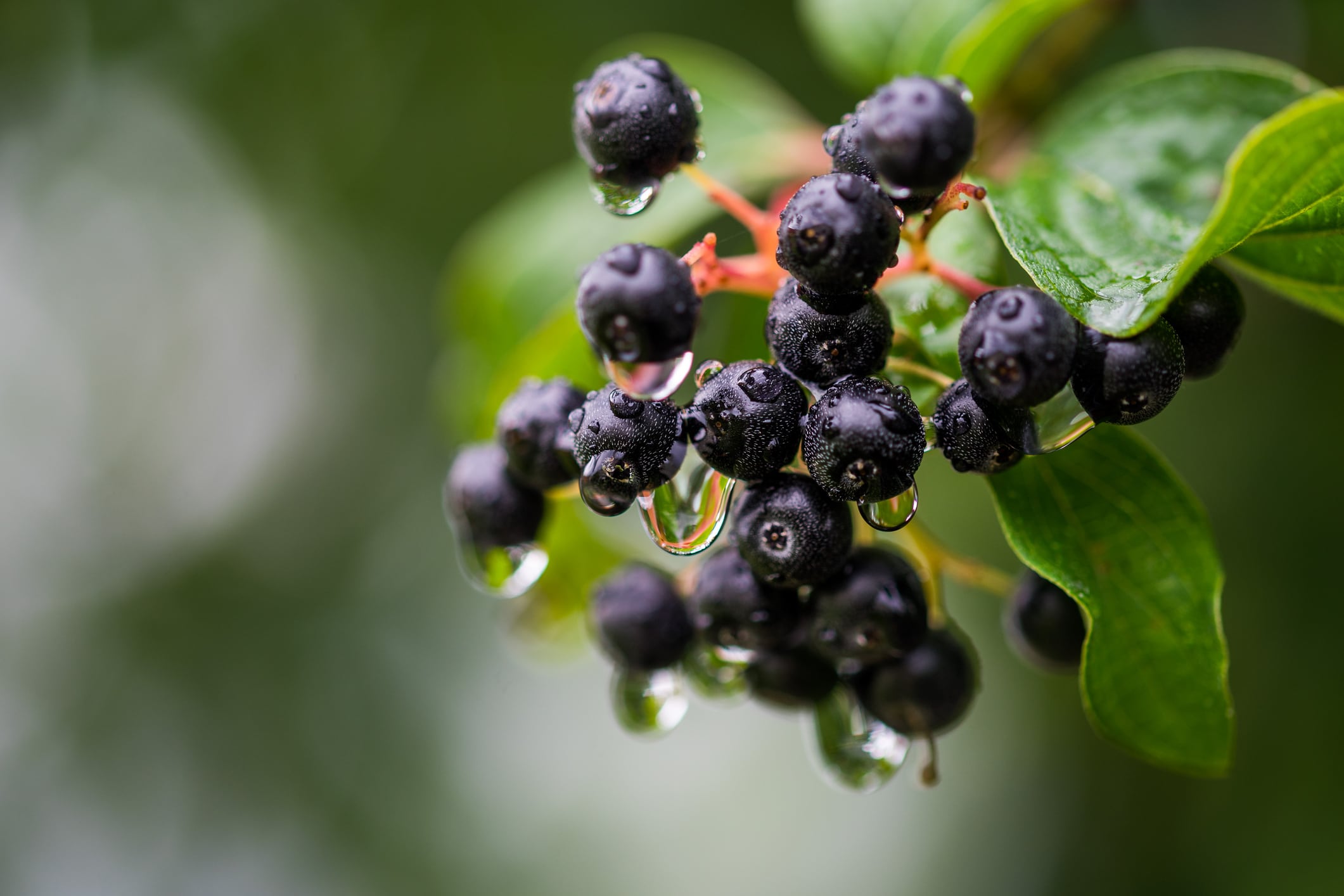Data from a randomized, double-blind, placebo-controlled trial with 102 people indicated that 12 weeks of consumption with a polyphenol-rich aronia extract (Aronox, provided by Naturex SA) also led to increases in the abundance of butyrate-producing species in the gut.
“The present findings suggest that daily consumption of aronia berry extract led to improvements in arterial function in healthy middle-aged people, with a concomitant and related increase in potentially health-promoting bacterial taxa,” wrote scientists in Clinical Nutrition.
“The bidirectional relationship between (poly)phenols and gut microbiome could explain these improvements in clinical outcomes, as multiple significant associations were observed between these different parameters.”
Aronia
Aronia is a member of the Rosaceae family native to eastern North America. It has also been naturalized in Europe.
The most studied form of chokeberry is Aronia melanocarpa (black chokeberries), but other forms of the berry exits, including Aronia arbutifolia (red chokeberries) and Aronia prunifolia (purple chokeberries).
Although originating in North America, commercial growing of aronia berries started in the Soviet Union and Eastern Europe. The berry was reportedly used for enhancing the diets of Russian cosmonauts.
The majority of the science supporting the potential health benefits of chokeberry relate to heart health (enhancing blood flow, normalizing blood clots, benefiting blood pressure), but other reported benefits include anti-inflammatory effects, antioxidant activity, and immunomodulatory effects. A study from the International Journal of Sport Nutrition and Exercise Metabolism also indicated potential for sports nutrition (2005, Vol. 15, pp. 48-58).
Study details
The new study, performed by scientists from King’s College London, Université Paris-Saclay, and Naturex SA (part of Givaudan), included 102 people with pre-hypertension. The participants were randomly assigned to receive either the Aronia supplement (500 mg capsules containing 106 mg total polyphenols per day) or placebo for 12 weeks.
The data indicated that aronia supplementation modestly improve pulse wave velocity (PWV), considered a measure of arterial stiffness, but no effects were observed on blood pressure. This, they said, could be related to the overall healthy lifestyle of the subjects in the study.
In addition, no changes in blood lipids were observed following supplementation.
Analysis of the gut microbiome indicated that the aronia group experienced significant increases in gut microbiome gene richness, which correlated with the improvements in PWV.
The researchers also found increases in the abundance of butyrate-producing species such as Lawsonibacter asaccharolyticus and Intestinimonas butyriciproducens species, compared to the control group.
“Interestingly, increased levels of those bacteria were significantly associated to a decrease in arterial stiffness and positively correlated to a circulating phenolic metabolite, 3,4-dihydroxybenzoic acid, which conjugated forms significantly increased in plasma and urine after Aronia consumption, with some evidence suggesting that it has anti-inflammatory properties in humans,” wrote the researchers.
“Future work should be conducted to investigated whether aronia supplementation may be effective in other at-risk populations such as hypertensives or people with CVD risk,” concluded the researchers.
Source: Clinical Nutrition
Published online ahead of print, doi: 10.1016/j.clnu.2022.08.024
“The effects of Aronia berry polyphenol supplementation on arterial function and the gut microbiome in middle aged men and women: results from a randomized controlled trial”
Authors: M. Le Sayec, et al.




